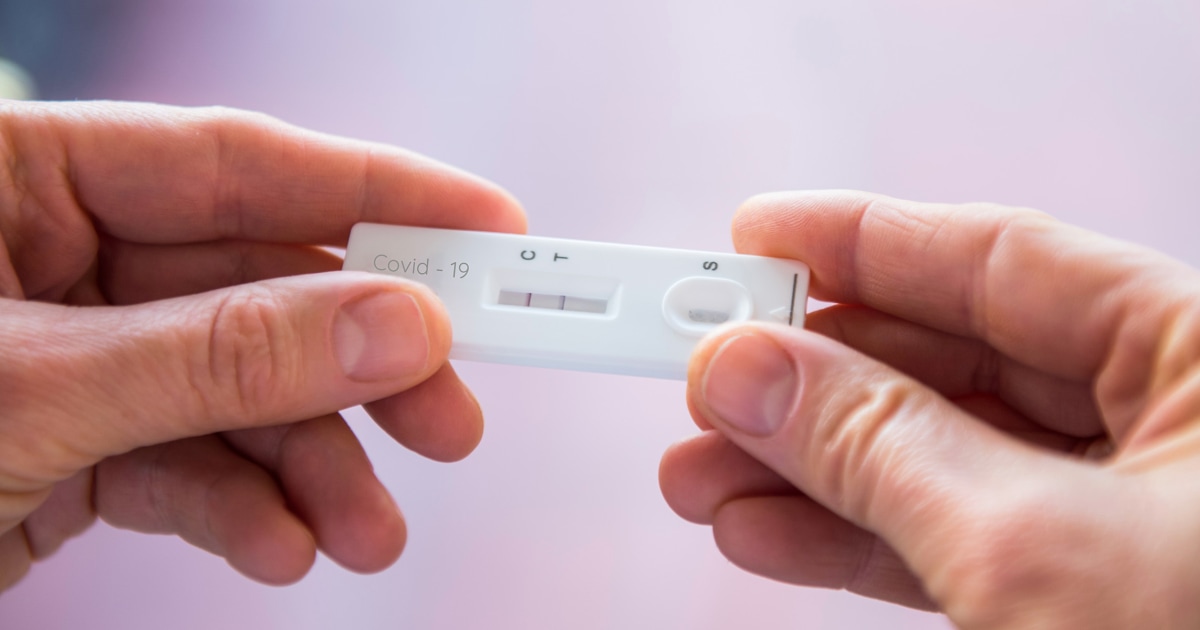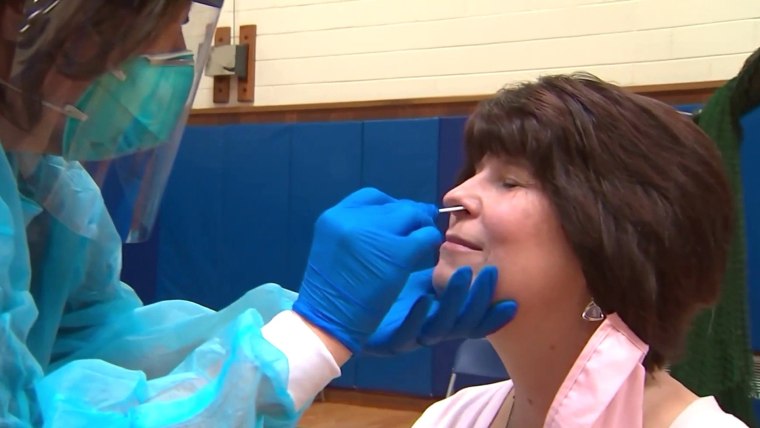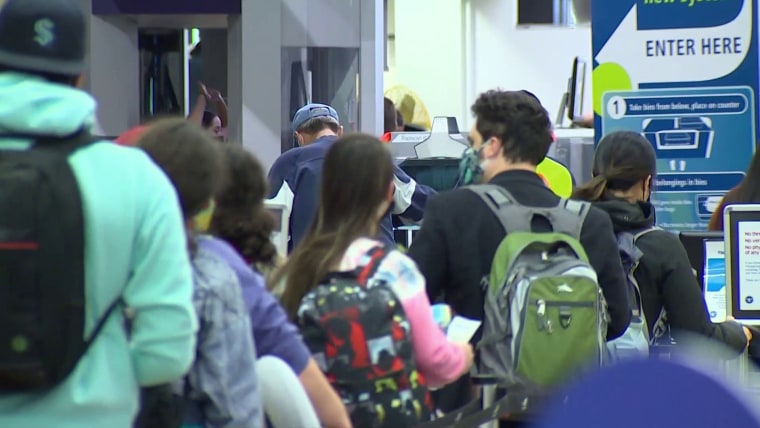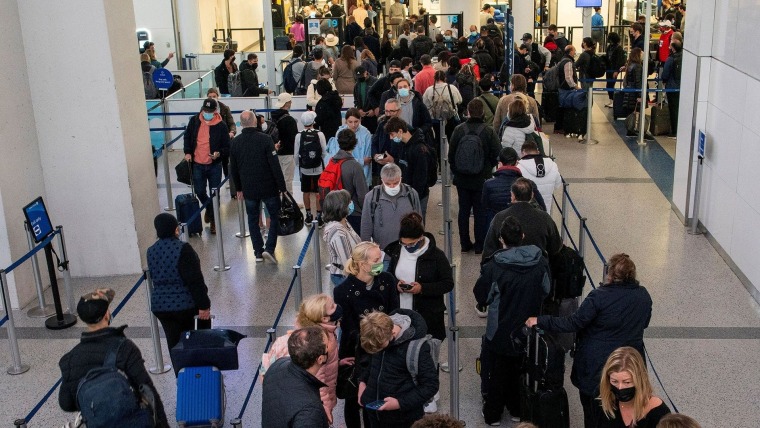It will soon cost nothing to take a rapid, at-home COVID-19 test available at pharmacies and stores, but you’ll still have to pay upfront and save your receipt.
The White House last week announced private health insurance will cover the over-the-counter tests, with more details of the plan to come by Jan. 15, 2022.
“More than 150 million Americans on private health insurance will be able to submit receipts for at-home tests directly to their health insurance plans, so they can go to their local pharmacy, they can order online, and then get reimbursed,” White House coronavirus response coordinator Jeffrey Zients said Friday.
“For those that don’t have private insurance, we are making available, starting this month, free tests at convenient places in their communities, like health clinics and community centers.”
At-home options
The U.S. Food and Drug Administration has authorized more than a dozen tests that are performed at home with a self-collected sample.
The kits include a swab for people to insert into their nose — but usually not as deeply as the traditional tests — and a test card or portable device where the sample is inserted and automatically analyzed. Results are often available in minutes.
The rapid test is an antigen test, which detects specific proteins from the virus and can offer faster results with less lab work.
But it’s less sensitive than a molecular test, often referred to as a PCR test, which detects the genetic material of the virus. (Home collection kits for molecular tests still allow people to swab their own nose, but the sample must be mailed to and analyzed in a lab, which can take a few days.)
Testing, including at-home testing, is critically important to help reduce the spread of the virus, the Centers for Disease Control and Prevention noted.
‘The tests should be free’
The plan to have health insurance companies cover the cost of rapid tests will help consumers, but “it is not a magic bullet by any stretch,” said Sabrina Corlette, co-director of the Center on Health Insurance Reforms at Georgetown University’s McCourt School of Public Policy in Washington.
“It’s not removing the barriers that exist — it’s maybe lowering them slightly for some people,” Corlette told TODAY.
“To me, the issue is if somebody has been exposed or has symptoms, there should be no hesitation. They should be able to get a test right away and not worry about the cost… The (tests) should be free and they should be far more available and accessible to people than they are now… this is not rocket science.”
That’s how some other countries do it. In the United Kingdom, for example, a government website allows people to order a free pack containing seven rapid COVID-19 tests per day that is sent to their home.
But in the U.S., a pair of rapid tests can cost about $25. Whole families often have to get tested, so for a couple with three kids, the cost to pay upfront might be enough for some people to hesitate, Corlette noted.
The details of the Biden administration’s plan are yet to be announced, and health insurance providers are working to make sure “the full impact of these actions” on Americans is understood, said David Allen, a spokesperson for America’s Health Insurance Plans, an industry trade association.
That includes ensuring that “price gouging does not spread to OTC tests, that consumers are protected from higher premiums, and that clear rules and guidance allow these efforts to be implemented effectively,” Allen added.
Here is how experts envision the plan will work:
What is the process to get reimbursed?
It will likely be similar to the process you go through with your health insurance company when you want to be reimbursed for an out-of-network visit or procedure. Save the receipt and then mail it to your insurance or upload it via an online portal.
“Right now, every insurance company does it a little differently and quite honestly… you have to jump through a number of hoops to get reimbursed,” Corlette said.
“So I would hope that the Biden administration would really emphasize and require insurers to provide a standard form and make it really simple and easy for consumers to go through this process.”
Could drugstores file the reimbursement for you?
It’s possible, since it might give them a competitive edge if they make it “super easy” for their customers to get a test for free without having to file paperwork, Corlette noted. But she didn’t expect federal rules to require pharmacies to do that.
Will there be limits on how many rapid tests will be covered?
It’s unclear, but the government could potentially allow insurance companies to place limits on the number of tests that could be purchased at any one time, Corlette said.
“Because if you know you’re going to get 100{6f90f2fe98827f97fd05e0011472e53c8890931f9d0d5714295052b72b9b5161} reimbursed, what’s going to stop people from buying 100 tests?” she noted.
Would the coverage be retroactive to tests people bought this year?
No word on that so far, and Corlette didn’t think the plan would be retroactive, but she still urged people buying tests today to save their receipts just in case and perhaps try to submit them next year when the policy is in full effect.
What are the drawbacks of the plan?
Experts are concerned the cost of the rapid at-home COVID-19 tests will rise because manufacturers know the insurance companies will now have to pick up 100{6f90f2fe98827f97fd05e0011472e53c8890931f9d0d5714295052b72b9b5161} of the cost of these kits and hike prices.
That, in turn, would impact people who don’t have health insurance, Corlette said.









More Stories
The Introvert’s Sanctuary: Why Creating a Home Gym Could Transform Your Wellbeing
Health and Fitness: A Holistic Approach
10 killer 10-minute workouts to transform your fitness routine